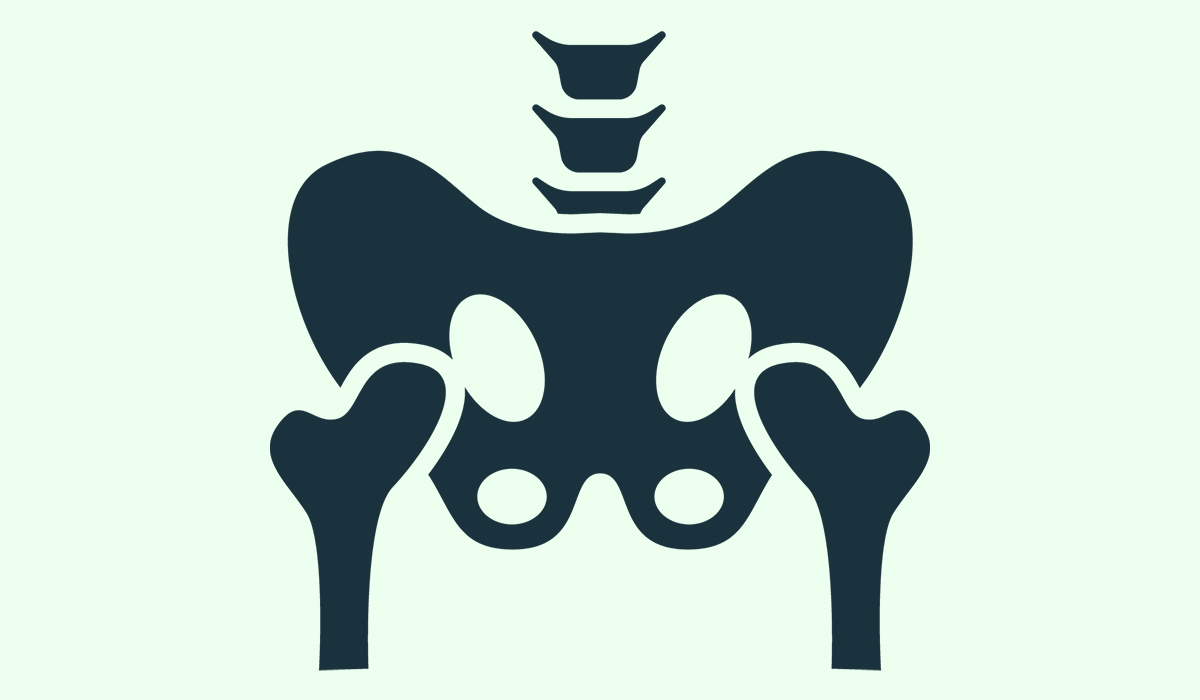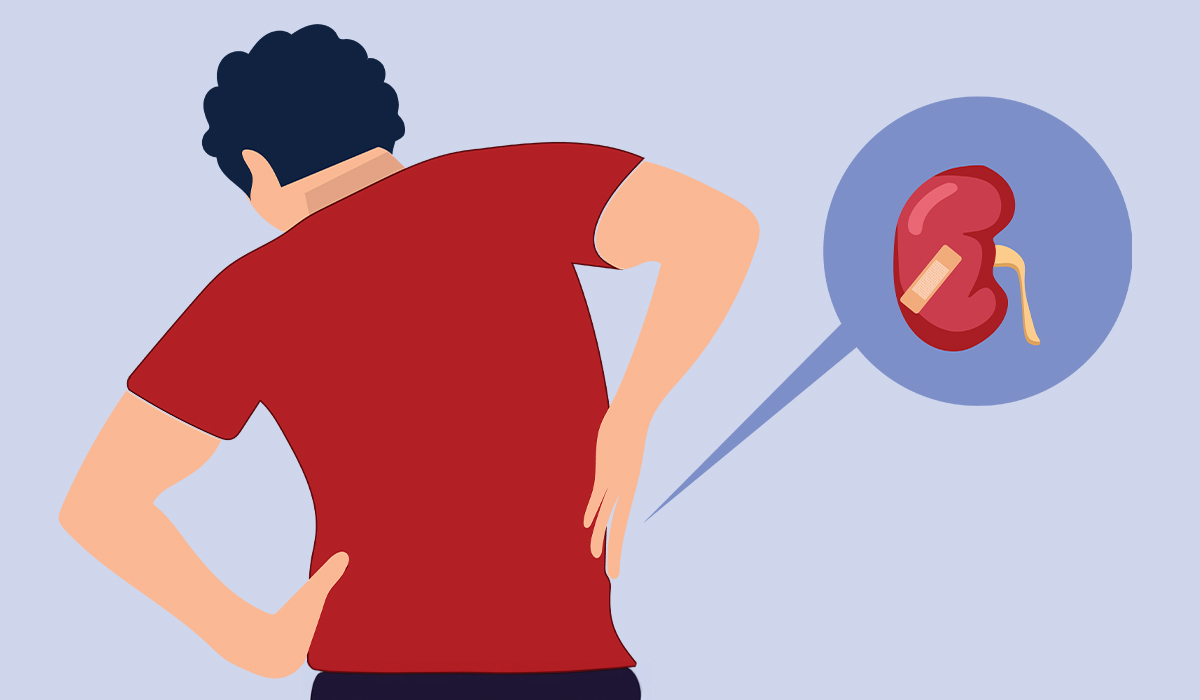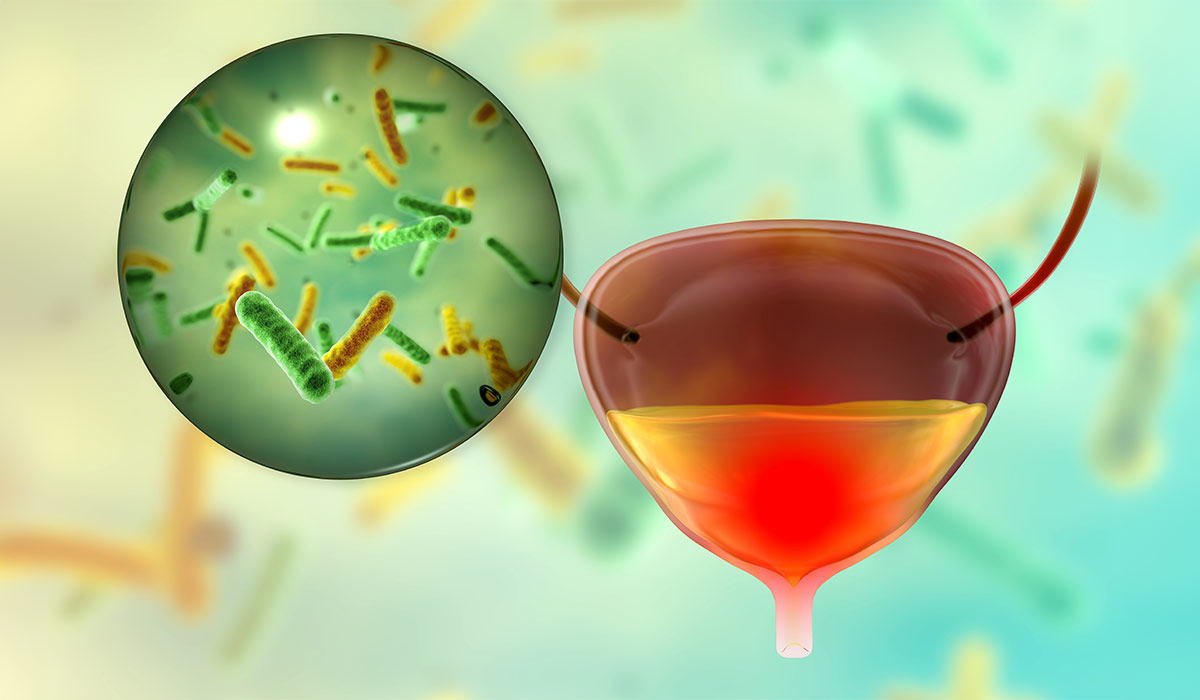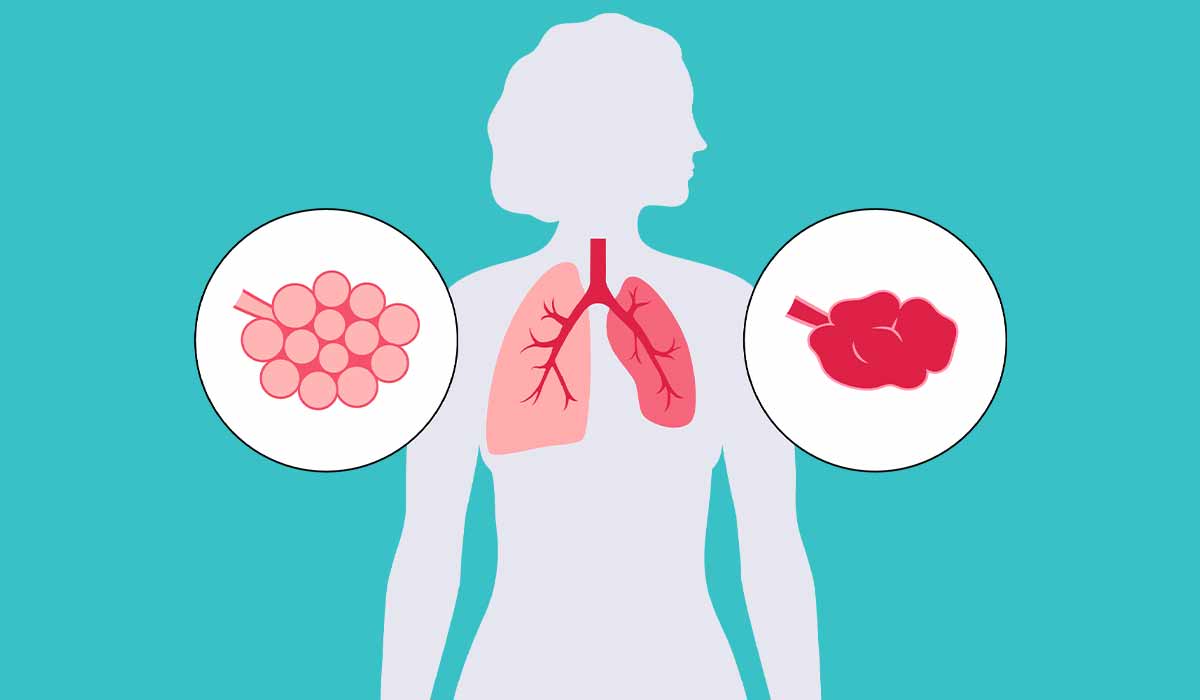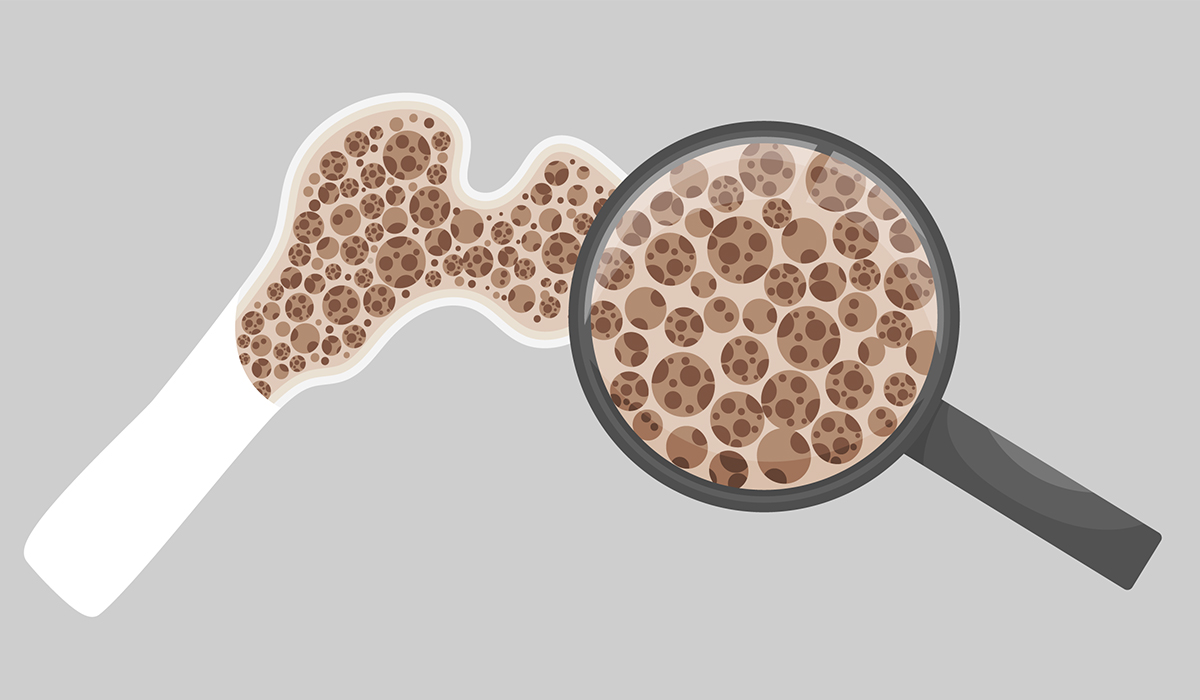The severity of ascites varies from person to person. Some people don’t notice weight gain because there is not much fluid accumulation in their bellies. In these mild cases, possible symptoms may include shortness of breath, vomiting, nausea, and heartburn.
Ascites is a condition that requires immediate medical attention. If you notice a sudden weight gain, don’t hesitate to contact your healthcare provider. If you have ascites, you will need to receive treatment and diet recommendations.
How Common Is Ascites?
It is very unlikely to develop ascites for a healthy person. According to the National Library of Medicine, approximately 80% of people who get ascites have severe scarring of the liver. In the USA, it is the most common cause of ascites, accounting for 85% of all cases.
Other health conditions that may lead to ascites also include kidney failure, cancers, tuberculosis, heart failure, and obesity. Check out the ‘Risk Factors’ paragraph to learn more about health issues that increase the chance of ascites.
Causes
Many conditions may result in ascites, but the most common is cirrhosis. It may lead to an accumulation of fluid between the two layers of the peritoneum – a sheet of tissue that covers the abdominal organs, such as kidneys, bowels, liver, and stomach.
Cirrhosis develops when there is too high blood pressure in the blood vessel called the portal vein. It’s a blood vessel that delivers blood from the digestive organs to the liver. The result of too high pressure in this vessel is improper kidney function, eventually leading to the accumulation of fluid in the belly.
But why does cirrhosis happen in the first place? There are several causes of this condition. The most common risk factors are cancers, especially peritoneal cancer. If tumor cells develop in the belly’s lining (peritoneum), they may produce a proteinous fluid, leading to ascites.
In some cases, cirrhosis may develop due to heart or kidney failure. It is because failure of these organs may lower the blood volume in the arteries, affecting how body systems work. The most significant changes include sodium and water retention and constriction in the kidney’s blood vessels, which may cause ascites.
Ascites and Belly Fat
Ascites and belly fat are distinct, though they can sometimes be confused due to how similar they look. Doctors can usually tell the difference during a physical examination. The shape of the abdomen while lying and standing is not the same for high-fat percentage and ascites. People affected by ascites have swollen and hard bellies, indicating something other than body fat. Another clue is that ascites cause sudden changes in body shape and weight, which do not occur during a typical weight gain.

Risk Factors
Many prolonged lifestyle habits and health conditions may lead to ascites. The following factors play the biggest role in the development of this condition:
- Non-alcohol-associated fatty liver disease
- Alcohol use disorder
- Hepatitis B
- Hepatitis C
- Viral infections
- Obesity
- Pancreatic disease, such as chronic pancreatitis
- Congestive heart failure
- Kidney failure
- Autoimmune hepatitis
- High cholesterol
- Type 2 diabetes
- Ovarian lesions
- Severe malnutrition
- Pancreatic, liver, or endometrial cancer
- IV drug use
- Dialysis
- Hypercholesterolemia
- Chronic alcohol use
- Nephrotic syndrome
- Wilson disease
- Alpha-1-antitrypsin deficiency
According to the National Library of Medicine, cancer is the second most common cause of ascites, accounting for 10% of all cases. It is followed by heart failure, which causes 3% of ascites, and tuberculosis, accounting for 2% of ascites cases. Only 1% of ascites is caused by pancreatic disease and dialysis, while the rest mentioned risk factors are even rarer.

First Signs and Symptoms
The telltale sign of ascites is a swollen belly and an uncomfortable sensation. However, it may feel different in the early stages, when there is not much fluid build-up in the belly. As it progresses, more obvious symptoms such as feeling full and weight gain develop.
Other symptoms that are linked to ascites include:
- Shortness of breath
- Pain in the back
- Fatigue
- Difficulty sitting
- Abdominal discomfort
- Feeling full even after little meals
- Vomiting
- Heartburn
- Constipation
- Indigestion
- Swelling in legs and feet
- Urinating more often than usual
- Lack of appetite
- Bloating
If you have bacterial peritonitis, you may also develop fever, abdomen tenderness, and confusion.
Experiencing the above symptoms is a sign that you may have ascites or other health conditions affecting your abdomen. These issues shouldn’t be ignored as they may become worse, leading to complications and irreversible damage to your body. Contact your healthcare provider if you notice that you have suddenly put on weight.
Complications
Untreated ascites increase the risk of developing complications. Possible outcomes include the following:
- Bacterial infections, including spontaneous bacterial peritonitis (SBP)
- Abdominal pain
- Hepatorenal syndrome (a life-threatening condition that affects kidneys)
- Hernias, including inguinal hernias
- Hepatic hydrothorax (a condition that prevents the liver from removing toxins from your body)
- Hepatic encephalopathy (a nervous system disorder caused by liver disease)
- Edema (a condition leading to swelling of feet, ankles, and legs)
- Bleeding of the lower or upper gastrointestinal tract
- Pleural effusion (accumulation of fluid in the space between chest cavity and lungs)
Diagnosis and Tests
To diagnose ascites, your doctor will perform a physical exam first to see if common symptoms are present (swollen belly and digestive issues like bloating). You will also be asked about your medical history and symptoms you developed, particularly a sudden weight gain.
The next step of diagnosis typically involves several tests to rule out other possibilities. These most commonly include SAAG test, imaging scans, paracentesis, and blood test:
- Serum ascites albumin gradient (SAAG) test: The SAAG test compares the levels of a protein called albumin that is produced by the liver in belly fluid and blood.
- Imaging scans: Ultrasound, CT scan, and X-ray provide detailed images of the inside of the belly, helping to find the cause of ascites.
- Paracentesis: Paracentesis is a test that requires a local anesthetic. It involves taking a sample of ascite fluid by inserting a needle into an individual’s abdomen by a healthcare specialist. The fluid sample is then sent to a lab to find out the signs of cancer, portal hypertension, infection, and other conditions.
- Blood tests: Blood tests help determine whether high blood pressure comes from diabetes or an abdominal infection.
Conventional Treatment
There are several treatment options for ascites. It is up to your doctor to choose the best strategy for your case. These usually include diuretics, sodium retention, shunts, or paracentesis:
Diuretics
Diuretics, also called water pills, can be beneficial to people suffering from ascites. The purpose of such pills is to eliminate the excess fluid in your belly, which helps reduce swelling. People who take water pills sometimes need to monitor their blood chemistry and control salt intake. It is not recommended to drink alcohol while taking diuretics.
Sodium Reduction
Sodium reduction is a lifestyle change that aims to lower the amount of sodium in your diet. According to the American Health Association, adults should not consume more than 2300 milligrams of sodium daily.
Shunts
A shunt is a permanent tube a surgeon plants in a person’s body. It is a viable solution for people with ascites whose condition does not improve after taking diuretics. It helps drain the fluid that accumulates due to ascites.
Paracentesis
Paracentesis is when a medical professional uses a long, thin needle to drain fluid from the abdomen. This method is used in severe and recurrent cases of ascites. Your doctor can also recommend it if you do not respond well to diuretics.
When Should You See a Doctor?
You should contact your healthcare provider after you notice the telltale signs of ascites, including a swollen abdomen, rapid increase in body weight, or shortness of breath. Early diagnosis and treatment are crucial to decrease the risk of developing severe health issues that ascites may cause.
In severe cases of ascites, however, some alarming symptoms may develop early. Seek medical care as soon as possible if you experience the following issues:
- Difficulty staying awake
- Feeling confused
- Severe breathing problems
- Fever that doesn’t go away
- Blood in the vomit or stool
- Bruising and bleeding easily
- Swollen ankles or legs
Prognosis
Ascites is a severe health condition, but it can be successfully managed with the right treatment and lifestyle changes. Although there is no cure to get rid of the symptoms fully, most people can significantly increase their quality of life thanks to dietary changes, medical procedures, and surgeries. Thus, the outlook for a given individual depends on their prompt reaction to ascites, the cause, and whether complications have developed.
During treatment, make sure to follow your doctor’s recommendations to improve your chances of recovery.
Are There Any Ascites Home Remedies?
Home remedies can offer some relief for ascites, but it’s important to note that they should be used as complementary aid alongside medical treatment, not as a sole solution. Always consult a healthcare professional before trying any home remedies, especially if you have a medical condition. Here are some potential home remedies:
- Herbal teas (dandelion, parsley)
- Epson salts bath
- Garlic juice
- Carrot juice
- Ginger
- Castor oil
- Radish
- Onions
- Bitter gourd
- Punarnava herb
- Horse gram soup
- Fenugreek seeds
How to Prevent Ascites?
There are no specific strategies to prevent ascites. The best way to decrease the risk of developing this condition is to live a healthy lifestyle that encompasses a well-balanced diet, limited use of harmful substances like alcohol and tobacco, and daily physical activity.
See what you can do if you want to lower the risk of developing ascites as well as many other conditions that are linked to unhealthy lifestyle:
- Limit the use of NSAIDs: Nonsteroidal anti-inflammatory drugs such as ibuprofen and aspirin may cause the body to retain water and salt, which negatively impact the health of your kidneys.
- Try a low-sodium diet: Don’t eat more than 2300 milligrams of salt daily to increase your overall health. A low-salt diet is especially beneficial to people with kidney issues.
- Limit alcohol and tobacco: Both tobacco products and alcohol increase the risk of numerous health conditions, including ascites and cirrhosis.
- Follow safe sex guidelines: If you practice sex in an unsafe way, you increase the risk of developing hepatitis, which can damage your liver, eventually leading to cirrhosis. Safe sex guidelines include getting tested for STDs regularly, using a new condom for each sexual encounter, avoiding unprotected sex, minimizing the number of sexual partners, and avoiding risky sexual behavior (substance or alcohol use during sexual encounters).
- Maintain a healthy weight: Obesity is a contributing factor to developing ascites, as well as numerous conditions, including type 2 diabetes, Coronary heart disease, high blood pressure, many types of cancer, and depression. Weigh yourself regularly to make sure that you keep your weight at a healthy number.

Key Facts You Should Know
Ascites is a condition characterized by an abnormal accumulation of fluid in the abdomen, often resulting from underlying health issues, with liver cirrhosis being the most common cause. The fluid buildup can lead to discomfort, trouble breathing, abdominal swelling, and various complications, including bacterial infections, edema, and hernias.
The primary cause of ascites is often liver cirrhosis. However, several factors can contribute to ascites, including heart failure, kidney disease, certain cancers, obesity, and viral infections. Lifestyle factors such as chronic alcohol use, high cholesterol, and obesity also increase the risk of developing this condition.
Treatment options include using diuretics to reduce fluid buildup, reducing sodium intake, surgical interventions like shunts, and procedures like paracentesis to drain excess fluid from the abdomen. Lifestyle changes, including a better diet and limiting alcohol and tobacco products, also help manage this condition. While ascites can’t be completely cured, proper treatment and following medical advice can significantly improve the quality of life.
Sources
- Maria Chiejina; Pujitha Kudaravalli; Hrishikesh Samant. (2023). Ascites.
https://www.ncbi.nlm.nih.gov/books/NBK470482/ - Cancer Research UK. (2021). What is ascites?
https://www.cancerresearchuk.org/about-cancer/coping/physically/fluid-abdomen-ascites/about - American Liver Foundation. (2023). What is ascites?
https://liverfoundation.org/liver-diseases/complications-of-liver-disease/ascites/ - Bashar Sharma; Savio John. (2022). Hepatic Cirrhosis.
https://www.ncbi.nlm.nih.gov/books/NBK482419/ - American College of Gastroenterology. (2021). Ascites Overview.
https://gi.org/topics/ascites/
- Ascites: What Is, Causes, Risk Factors, Treatment, and Prevention
- What Is Ascites?
- How Common Is Ascites?
- Causes
- Ascites and Belly Fat
- Risk Factors
- First Signs and Symptoms
- Diagnosis and Tests
- Conventional Treatment
- When Should You See a Doctor?
- Prognosis
- Are There Any Ascites Home Remedies?
- How to Prevent Ascites?
- Key Facts You Should Know

